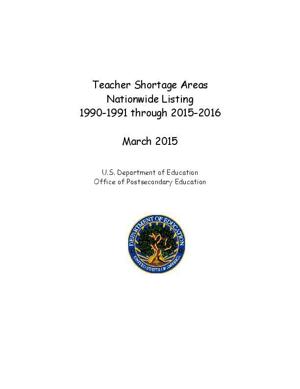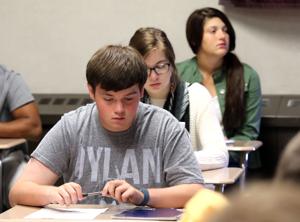Educator pay lag likely aggravating teacher shortage

INDIANAPOLIS | The teacher shortage affecting hiring at Indiana schools — and districts across the country — has been attributed to everything from increased student testing and partisan politics, to higher standards required for new teachers and excessive retirements.
But region teachers note one key factor generally is missing from most analyses of the teacher shortage issue: pay.
Reggie Tisdale, a 24-year teacher in East Chicago public schools, said it's getting harder to convince someone who borrowed $100,000 for their college education to take a job where they'll only make $35,000 a year to start, and pay increases, when available, must primarily be based on student test scores.
"Of course you don't go into it for the money, you go for the love of the kids and working with children," Tisdale said. "But always in the past we knew that we could climb that 20-year increment ladder and one day you could possibly buy a home and have a family."
"Those days are now gone and that's, in my opinion, the biggest reason for this teacher shortage."
Veteran Valparaiso music educator Deb Porter agreed. She described the overall economic outlook for teachers as "grim."
"Before you might have started at $34,000 or $35,000 but you looked at the pay scale and you knew in 16 or 18 years you were going to be making $50,000 or $60,000," Porter said. "That no longer exists."
She said the 2011 state law limiting pay raises for years of service and a teacher's own education discourages people from entering or remaining in the profession, and often requires them to look at it as just a short-term experience instead of a long-term career because they can't afford to stay in the job.
"There's still a group of people who are going to be teachers no matter what...but those are fewer and farther between because teachers going into education now, women especially, they're looking at the very real possibility that they are major contributors to their family's economy," Porter said.
The effect of that turnover on student achievement can be significant because first- and second-year teachers inevitably make many mistakes, she said. Students who repeatedly are taught by novice educators may miss out on the more effective instruction a veteran teacher usually provides.
"If you're only going to do it for three, five, seven years are you really going to be latching on to professional development, are you really going to be concerned about making sure that you're the best you can be?" Porter asked. "There's a lot of mindset change that happens when you know you're only going to be there for two more years."
Indiana vs the rest
Compared to neighboring states, particularly Illinois and Michigan, Indiana teachers typically earn less than educators working elsewhere.
According to salary information compiled by the U.S. Department of Education and the National Education Association, a teacher's union, the average starting salary for an Indiana teacher is $34,696 a year, just shy of the national average of $34,935.
A first-year teacher in Illinois can expect to earn $37,166, but given the generally lower cost of living in Indiana the Educator pay lag likely aggravating teacher shortage : Politics:
Average teacher starting salaries
Indiana - $34,696
Illinois - $37,166
Michigan - $35,901
California - $41,259
Average teacher salaries with experience, bachelor's degree
Indiana - $42,900
Illinois - $45,660
Michigan - $47,260
California - $62,010
Average teacher salaries with experience, master's degree
Indiana - $55,360
Illinois - $64,670
Michigan - $64,130
California - $67,830



